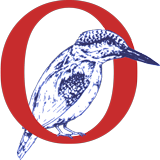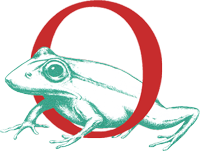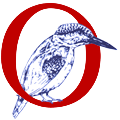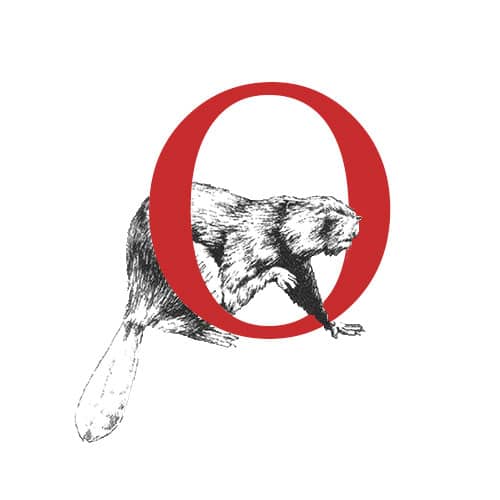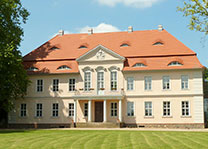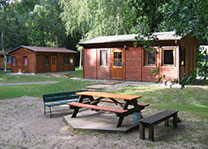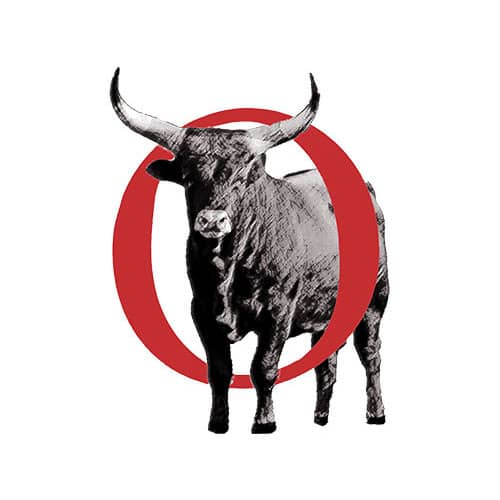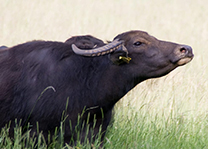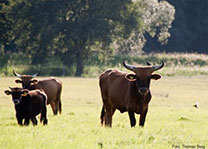In the year of the Ox
Press release on the annual press conference of the Association of Friends of the German-Polish European National Park Unteres Odertal e. V.
on Wednesday January 14th, 2009
In the work of the association, the focus last year was on deepening the Environmental education . High school teachers from the Uckermark were invited to the Teerofenbrücke Wilderness School to introduce them to the facility and what it has to offer, with a good response. The teachers also took this opportunity to get to know the excursion program, in which volunteer scientists make their specialist knowledge available to visitors and residents of the region in a generally understandable way. The 13 excursions in 2008 were used by 305 visitors. The excursion program will be continued in 2009 as well.
The will also be continued Land acquisition . Last year the association was able to acquire 15 hectares of land in the national park region. This year, too, there are enough funds available to buy their space from interested owners quickly and unbureaucratically at market prices. Existing leases are of course taken over by the association.
The board of the association met repeatedly with the responsible employees of the Ministry for Rural Development, Environment and Consumer Protection (MLUV) for detailed discussions about the Future of the major nature conservation project and the reorganization of the land. The talks were interrupted and delayed by the release of the head of department Karl-Heinrich von Bothmer, who had been responsible for nature conservation up until then, last summer. Agreement was reached on a number of points and some questions are still open. The association only provides more detailed explanations when the negotiations have either been successfully concluded or broken off unsuccessfully. We definitely hope for the former. However, the association remains committed to its statutes, its grant notices and its nature conservation claims.
We start the year 2009 after the birth of Christ. In China, the most populous country on earth, this begins in January Year of the Ox . It stands for a certain clumsiness, but also for patience and gentleness. A Chinese proverb says: “The buffalo prefers fresh grass than a golden manger”.
We have taken that to heart. As a priority topic for 2009, we will intensify our coöperation with local agriculture, especially in Zone II. Two projects are emerging:
On the one hand, we are striving, increasingly successfully, for late cut grass from the area of Bioenergy to find interested buyers. Such a solution is not only economically but also ecologically interesting. We hope for a small breakthrough on this issue in 2009.
On the other hand, we want to encourage local agriculture, with the three European ones Cattle species to experiment more in the field of landscape management. There is the aurochs exterminated by humans not so long ago (1627), of which the rear-bred Heck cattle reminds us very clearly. There is also the European bison, which has just been saved from extinction, which should find a home in the national park region because of its tourist attractiveness, but also for reasons of species conservation, and the third, the water buffalo, whose last representative trudge through the swamps in the wild in Assam Domestic form but is quite at home in Central Europe. We expect these buffaloes to be quite suitable for biotope maintenance projects in a floodplain landscape. So we are in the year of the Ox.
At the beginning of its activity, in the early 1990s, the association had already acquired extensive domestic cattle breeds such as “Welsh Black” and “Salers” and made them available to farmers. Now we want to encourage and support farmers to gain experience with cattle in biotope maintenance and organic farming.
As before, the association is of the opinion that agriculture in the national park area should be carried out by the local farmers. Only where there are no adequate solutions will the association itself become active as an agricultural enterprise. The prerequisites for this have been created.
There are major problems in maintaining the Dry grass which are of great importance especially for the Lower Oder Valley. In 2008, the MLUV paid no funding at all to the Brandenburg shepherds and shepherds who graze on such barren dry grasslands, but this is economically not possible without funding. We consider it a scandal that the sheep farmers, which are so important for ecological biotope maintenance, are falling out of agricultural subsidies, while other areas, such as the food industry, cannot save themselves from subsidies at all. The MLUV urgently needs to take countermeasures here, pay the funding for 2008 and adjust it for 2009 so that the shepherds can guarantee adequate dry grass maintenance.
Thomas Berg
CEO
